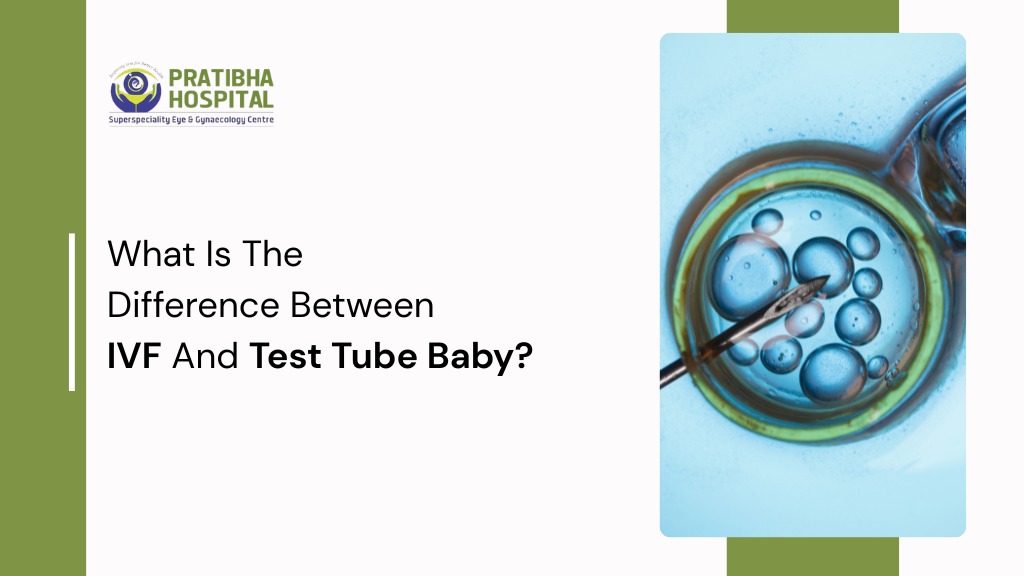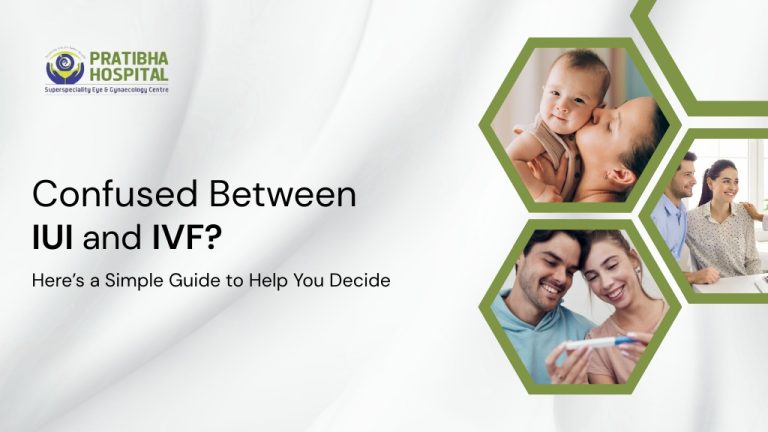What Is The Difference Between IVF And Test Tube Baby? Simply Explained
Many people often ask—are IVF and test-tube babies the same, or is there a difference?

These two terms come up a lot when people discuss fertility, and it’s totally normal to get a bit puzzled by them. Do they mean the same thing, or is there something different between the two? In this blog, we’re going to break it down in a way that’s simple to follow, like how you’d talk to a friend. When people have the right information, they feel more sure, especially if they’re thinking about fertility treatment or helping someone who is.
IVF—What It Really Means
IVF is when an egg is fertilized outside of a woman’s body with sperm in a lab. Many couples go for this option when getting pregnant naturally doesn’t work out
Let’s have a look at how it works:
- First, medicines are given to women so that their ovaries can produce more eggs.
- Then the doctors take the eggs out. Most women are back home the same day.
- After that, the eggs and sperm are brought together in the lab with close monitoring.
- If fertilization happens, embryos are created. One or more embryos are carefully selected and placed back into the woman’s uterus.
- It’s done with full care, step by step, at the right time. It’s usually chosen when other methods of trying to conceive have not worked.
It’s done with full care, step by step, at the right time. It’s usually chosen when other methods of conceiving have not worked.
Also read: How many times can IVF be done to be successful?
So, what Is A Test Tube Baby?
The term “test tube baby” became famous in 1978 when Louise Brown was born—the first baby conceived through IVF. Back then, people didn’t know what IVF meant, so the media used simpler terms. “Test tube baby” sounded more dramatic, and it stuck.
But here’s the truth: no baby grows in a test tube. The egg and sperm are brought together in a lab, not in a test tube like many believe. If the egg gets fertilized, the tiny embryo is put back into the womb at the right time. The embryo is just like in a natural pregnancy.
Simply, a “test tube baby” refers to a child conceived through IVF. It’s not a different method—just an older, more commonly used name for the same procedure.
What Is The Difference Between IVF And Test Tube Baby?
In simple terms, there’s no real difference between IVF and a test tube baby—both refer to the same medical process.
The differences are:
- “IVF” is the professional name of the process.
- “Test tube baby” is a name used for an easy understanding of the patients when the technique was new.
They both describe the same method: fertilization happening outside the body. Today, people are more familiar with the name IVF, which is why it is used widely.
Why People Still Say ‘Test Tube Baby’
Even though IVF is the real term, a lot of people still use “test tube baby” in daily conversation. Why?
- It’s familiar, especially to older generations
- It’s simpler to say and remember
- It got popular through print media and television long before people were aware of fertility treatments
Over time, words, too, evolve. Just like we now say “mobile phone” instead of “cellular telephone,” medical language moves forward too. IVF has now become a word used in everyday talk.
Myths And Misunderstandings Around IVF And Test Tube Babies
Even though IVF is a super successful procedure, it still creates confusion in the mind. Here are a couple of frequent myths to break:
- That’s just not a healthy thing to do.” “It’s wrong. The IVF process may be carried out in an artificial environment. But the eggs and sperm are natural. It doesn’t transform nature—it just supports and speeds nature’s return to what is normal.
- IVF babies are not like everybody else—how dare you think that they could be normal and healthy and turn out with deserved love just like everybody else? Wrong again. The reality is that kids conceived via IVF are no different than other children. They just act like they’re born that way.
- It’s just for rich people.” IVF centers are costly, but treatment is available on a subsidy through most hospitals and government-based schemes that provide this assistance.
Who Can Benefit From IVF?
IVF isn’t just for one kind of patient. Many people turn to IVF when other options fail. It helps.

- Women with blocked or damaged fallopian tubes
- Men who have a reduced sperm count or slower sperm movement
- Women with ovulation problems like PCOS
- Couples with unexplained infertility
- Older women who face age-related fertility decline
- People who have tried other treatments without success
- Individuals who are single or part of a same-sex couple and require donor sperm or eggs
It’s always a good idea to speak with a fertility doctor to understand whether IVF is the right path based on medical history and goals.
Conclusion
IVF has helped many couples have children when nothing else worked. Some call it IVF, others say test-tube baby”—but in the end, it’s a way to make parenthood possible.
If you or someone you care about is thinking about treatment, don’t get stressed by the terms. Just have a good discussion with someone who has been through this process and is ultimately the best doctor so you will get a detailed understanding of every step and the experience. It’s okay to ask questions. That’s how you find what’s right for you.







